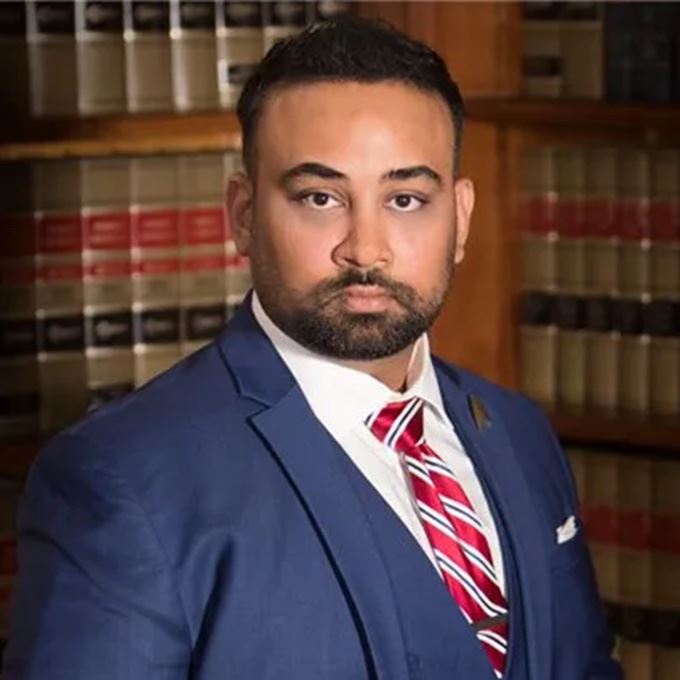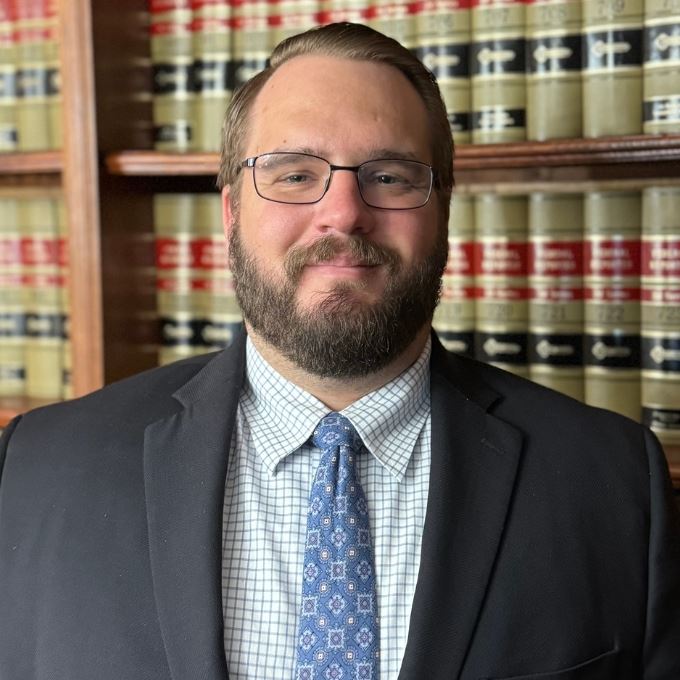
If you have been arrested or charged with a crime, don’t wait. Contact our criminal defense attorneys for immediate legal representation.
-
Case Dismissed Disorderly ConductAli & Blankner represented a client charged with disorderly conduct.
-
Case Dismissed BatteryAli & Blankner secure a case dismissal on behalf of a client charged with battery.
-
Case Dismissed DUIAli & Blankner worked to get a case dismissed involving a client with both a DUI and citations.


Orlando Criminal Defense Lawyers
Aggressively Fighting for Your Rights & Your Future
Ali & Blankner is a leading criminal defense and DUI law firm in Orlando and Titusville, FL. Together, our criminal defense attorneys have 85+ years of combined legal experience and have successfully represented more than 100,000 clients in complex criminal cases.
We have been recognized as one of the Nation’s Top One Percent law firms by the National Association of Distinguished Counsel, and our attorneys—all of whom are former prosecutors—have received numerous accolades for their many successes, commitment to client service, and ethical approach.
Should I Hire a Lawyer for Criminal Charges?
If you have been charged with criminal charges in Florida, it is important to consider the importance of hiring a defense lawyer who can provide legal guidance throughout your criminal case process. A skilled Orlando criminal defense attorney can help you understand the charges against you and will fight to protect your rights in court. They can also help you determine what defenses are available, if any, as well as negotiate with the government in seeking an agreement that might reduce or dismiss the criminal charges, or work to mitigate any potential sentence you may face. Hiring a criminal lawyer in Orlando for criminal charges is an important decision that could make all the difference when facing criminal charges in Florida.
How to Find a Criminal Defense Lawyer?
Finding a good criminal defense lawyer in Orlando, FL can be a daunting task. It is essential to do your research before finding an attorney since the outcome of the case might depend on finding just the right one for your individual needs. A good place to start is by finding out what experience and qualifications criminal defense lawyers have in your area. Also make sure to gather information on their track record and check reviews from past clients in order to get an unbiased opinion. Finally, finding an affordable criminal lawyer in Orlando who understands your concerns and prosecutes cases fairly is key when it comes to finding the right one. This will ensure you have the best chance of winning the case that you are pursuing.
When arrested or given notice to appear, you are assigned a future court date in which you must appear before the judge. it is imperative you call us and discuss your case with an Orlando criminal defense attorney immediately to prepare as the judge will formally read the charges against you and ask how you want to go forward.

Your Trusted Advocate & Ally
If you have been accused of a crime, you are innocent until proven guilty beyond a reasonable doubt. That being said, the United States criminal justice system does not often favor the accused. The legal process can be overwhelming; you need someone on your side who can not only protect your rights but also fight for your freedom and your future.
At Ali & Blankner, we understand what you are going through. Our experienced criminal defense attorneys in Orlando, FL knows the challenges you are up against—and they know how to fight back. As former prosecutors, our Orlando criminal lawyers work to help you obtain the upper hand. We have a unique understanding of both sides of the courtroom and can anticipate the prosecution’s case, giving you the best possible chance at a favorable outcome. While the future of your case is not guaranteed, we can assure you that we will fight zealously to protect your rights throughout the legal process. In every instance, we seek the best possible outcome, whether that’s a reduction of charges, a case dismissal, or a not-guilty verdict.
When your future is on the line, you want a legal team that has the resources to effectively defend your case. At Ali & Blankner, we have access to some of the industry’s leading expert witnesses and toxicology specialists, as well as decades of collective experience navigating the criminal justice system. We know how to build powerful cases on behalf of our clients, and we are prepared to use all of our resources, experience, and skill to your advantage.
Though we have the capability of a large, established firm, we continue to offer the same level of personal attention and client support you can only find at a boutique law office. At our firm, you will not be treated as just another case number; instead, you will have direct, one-on-one contact with your defense attorney throughout the duration of your case. You can expect to receive consistent communication and updates from our compassionate and knowledgeable team. We know that this is an immensely difficult time in your life, and we are here for you.
Criminal Process in Florida
The criminal process in Florida can be confusing and overwhelming. It typically starts with an arrest, followed by a court arraignment. If the defendant pleads not guilty, then a formal pre-trial is scheduled so the prosecution and the defense can present their cases before the judge. In most cases within Florida, a plea bargain prior to a trial is offered in exchange for some type of sentence reduction. After the pre-trial hearing, if a plea bargain has not been struck, then a trial date will be set by the court. At trial, both parties are able to call witnesses and submit evidence until each has presented its case. Following this, it is up to jury or judge to determine guilt or innocence of Florida defendants.
What Are My Rights in a Criminal Charge?
When facing a criminal charge in Florida, it is extremely important to be aware of your rights to ensure that they are fully acknowledged and respected. As a citizen charged with a crime, you have the right to remain silent and not incriminate yourself. Similarly, you have the right to counsel so that legal representation is available during the period of criminal accusation. Furthermore, you are entitled to reject any type of search or seizure of your person or property conducted without proper justification and authorization from law enforcement personnel. Lastly, you have the right to fair trial where all evidence is presented in accordance with established civil rights laws. Understanding and exercising these rights can help protect your rights when faced with criminal accusation.
What Is the Strongest Type of Defense to a Criminal Charge?
When facing criminal charges, the best defense to adopt is one that stands a greater chance of success. The most effective criminal defense strategies are those which are tailored to the specific details of the crime, taking into account factors such as witnesses and evidence. A knowledgeable Orlando criminal defense lawyer has the expertise necessary to create the strongest protective shield possible for their client. They can investigate any potential mitigating factors, building a comprehensive case against criminal proceedings. Furthermore, they understand what must be proved beyond reasonable doubt in order to secure acquittal or reduce sentencing severity. Ultimately, it's vital to have access to an experienced criminal defense attorney if one expects to maximize their chances of a favorable outcome in criminal court.
No matter how serious the charges against you may be, you can trust our Orlando criminal defense and DUI law firm to fight for you. It is imperative that you contact a defense attorney in Orlando, FL right away, as the prosecution is likely already building its case against you.


The genuine care and concern Mr. Ali showed us during a difficult time were very much appreciated. It has been a long journey, however, Mr. Ali and the team at Ali & Blankner have been there with us each step along the way.

Our Winning Strategy
Why You Want Ali & Blankner In Your Corner-
Prosecutor Insight & Knowledge
All of our Orlando criminal attorneys are former prosecutors and understand how the other side thinks. When you work with our team, you get a group of individuals who knows how to prepare and fight a winning case.
-
Large Firm Results, Small Firm Attention
Our criminal defense team in Orlando understands the ins and out of the legal industry, and we have the infrastructure and resources to handle any case that comes our way. We focus on your case specifically to ensure we get the best result for you.
-
Dedicated & Experienced Counsel
With over 35 years of experience and thousands of clients helped, Ali & Blankner has the skills, resources, and determination to get you the best possible result.
-
Fighters & Advocates in the Courtroom
The criminal lawyers in Orlando at Ali & Blankner are aggressive advocates who are willing to do whatever it takes to obtain a favorable resolution. We are committed to defending your rights and protecting your future.
Types of Cases We Handle
Put Ali in Your Corner
Protecting Your Family & Your Future
In addition to our comprehensive criminal defense and DUI practice, we represent individuals and families throughout the Greater Orlando Area in complex family law and personal injury cases. Our dedicated family lawyers and personal injury litigators in Orlando have been recognized by prestigious legal organizations for their client-focused service and long track record of success. In every instance, we are committed to protecting the rights of our clients and always keeping their best interests at the forefront of their cases. Whether you wish to file for divorce, are seeking primary custody of your child, or have been injured in a serious car accident, Ali & Blankner can help you fight for a better future.


Ali & Blankner
-
 Kendell K. AliSenior PartnerMr. Ali strongly believes that a person's inalienable rights to life, liberty, and the pursuit of happiness can be called into question at any time by mere accusations.
Kendell K. AliSenior PartnerMr. Ali strongly believes that a person's inalienable rights to life, liberty, and the pursuit of happiness can be called into question at any time by mere accusations. -
 F. Wesley Blankner Jr.Senior PartnerAfter graduating from the University of Florida with a Bachelor's Degree, Attorney Blankner moved on to obtain his Juris Doctorate from South Texas College of Law.
F. Wesley Blankner Jr.Senior PartnerAfter graduating from the University of Florida with a Bachelor's Degree, Attorney Blankner moved on to obtain his Juris Doctorate from South Texas College of Law. -
 Laura L. ParkerAssociate AttorneyMs. Parker firmly believes that the best outcome comes from her hard work, attention to detail, and communication every step of the way with the client.
Laura L. ParkerAssociate AttorneyMs. Parker firmly believes that the best outcome comes from her hard work, attention to detail, and communication every step of the way with the client. -
 Brendan MullaAssociate AttorneyMr. Mulla is a former Central Florida prosecutor who began his legal career after attending the University of Central Florida and Barry University, Dwayne O. Andreas School of Law. During his law school tenure, Mr. Mulla was a member of the trial team who ...
Brendan MullaAssociate AttorneyMr. Mulla is a former Central Florida prosecutor who began his legal career after attending the University of Central Florida and Barry University, Dwayne O. Andreas School of Law. During his law school tenure, Mr. Mulla was a member of the trial team who ...
Here for You When You Need Us Most
Our firm is available to assist you 24 hours a day, 7 days a week. We offer complimentary consultations and case evaluations to all prospective clients. During this initial meeting, you have the opportunity to share your story, ask your questions, and get the information you need to move forward. Our Orlando criminal defense attorneys will also take this time to get to know you, learn about your legal goals, and begin developing a strategy to protect your rights.
Reach out to our Orlando criminal defense lawyers today at (407) 753-1312 to schedule a free and confidential consultation with a member of our team. Hablamos español.

Put Ali In Your Corner
Don't Face This Fight Alone




























